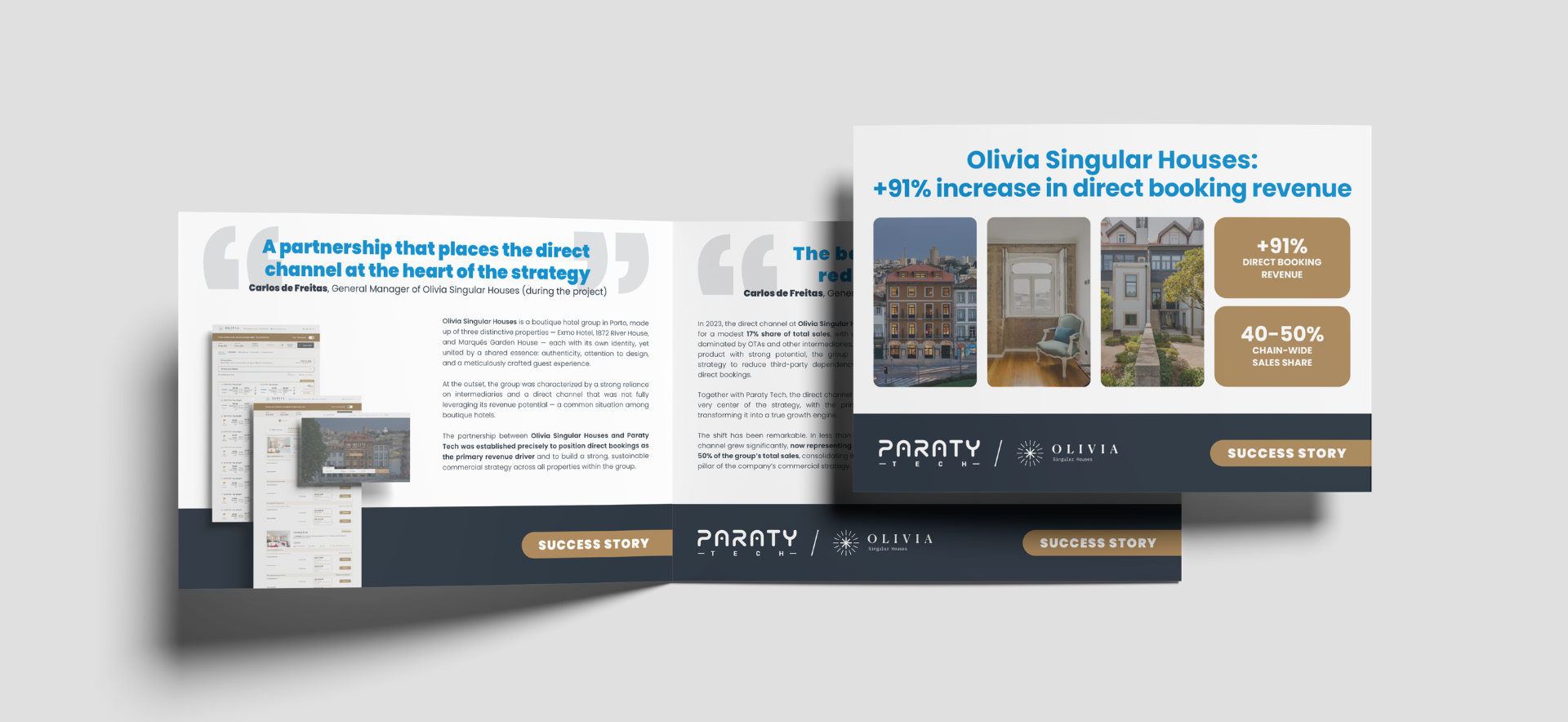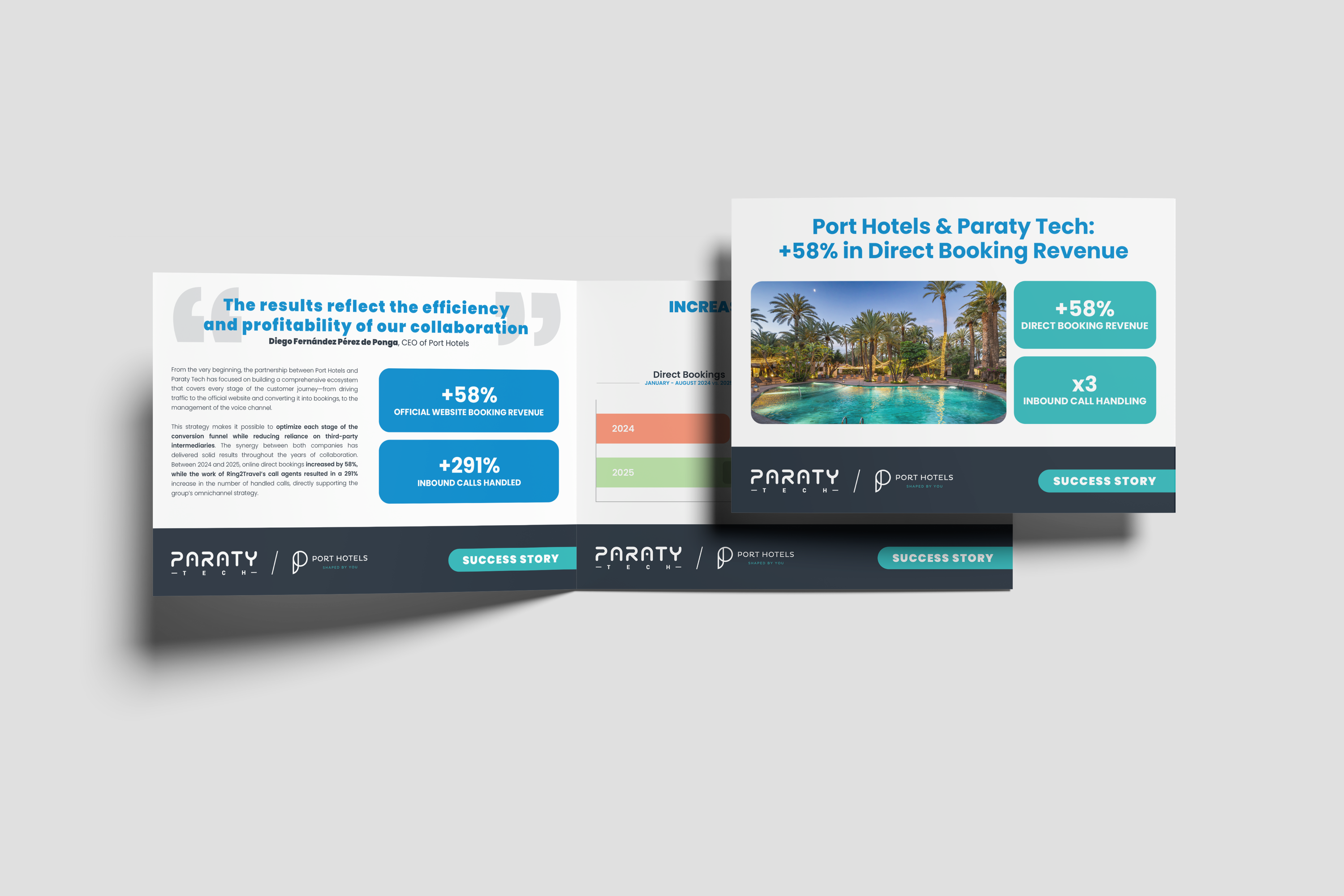Changes in Booking.com: goodbye to pre-paid rates
Revenue 15/07/2024Not in Spain yet, but…
Booking.com continues to take steps in its migration process from the agency model to the merchant model and, selectively, for certain partners and only in certain countries at the moment, it will not continue its pre-payment policies. In other words, they will not accept pre-paid rates , such as Non-Refundable, unless they are the ones who manage the payment and charge the guest directly.
As a summary, and just to make sure that we all understand the implications of this change, in the agency model that the OTA had been using, it acted as an agent, facilitating the reservation, but payment was made directly to the hotel at the time of booking. make the reservation, which gave him greater control over prices. On the contrary, in the merchant model to which it is gradually migrating, much more widespread among the rest of the online agencies, the OTA acts as a financial intermediary between the hotel and the guest, and the latter pays directly to Booking, who subsequently upon the client's stay, pay the hotel. A mechanism that gives the OTA greater control over prices and cancellation policies, and that will normally also allow it to retain a higher commission than in the agency model.
To provide some figures that shed some light on this change in model, according to Trefis (Yahoo Finance), in Q1 2024, more than 57% of Booking's revenue from reservations came through the merchant model, while Revenue from the agency model decreased from 51.5% the previous year to 42.5%. Without a doubt, it is a very lucrative transition that also brings closer positions with one of its main competitors, Expedia.
On this occasion, the change of course is justified by the OTA's alleged security concerns, as a result of multiple financial fraud attacks directed at its users. However, it is not necessary to think too badly to realize that, ultimately, this measure gradually brings them closer to a model that suits them much better.
Possible negative effects for the hotel
It is undeniable that for many hotels (especially the most “booking-dependent”), if they decide not to accept the new rules of the game (something quite unlikely, due to the risk it entails for them), this measure could lead to a reduction in reservations through of the OTA, with the consequent impact on the income statement. Although realistically, the normal thing would be for just the opposite to happen and see their intermediation costs increase, because the fact that booking manages the payment will improve the OTA's numbers by being able to make price disparities, the ability they have to offer many more payment methods by markets, etc., in addition to the fact that this way of working facilitates the collection operations from hotels (at the cost of losing control over the final price).
Traditionally, pre-paid rates have been used to offer an additional discount in exchange for, on the one hand, having that cash flow from the moment of booking and, on the other hand, for offering much more rigid cancellation policies than They allow hotels to secure the reservation and make a much more accurate forecast . The key is in this discount, which has led these types of rates to position themselves as the cheapest and, therefore, in many cases also the most attractive for customers.
If they disappear (again, something unlikely considering that a very high percentage of hotels already use the merchant model), one of the options is that users, more sensitive to price than ever, look for a cheaper alternative within the platform, or even that they opt for another channel and, therefore, the number of reservations decreases. A circumstance that almost forces hotels to “accept ship” despite its multiple implications.
And the fact is that hotels that accept the new rules of the game, and many will not be able to afford not to do so, will completely lose control over payments (and loyalty) and will grant the OTA a new way to generate price disparities (will it be coincidence that it coincides in time with the suppression of the parity clauses?). In addition, many will probably adapt to payment via virtual cards (although there is the possibility of bank transfer), which also entails an incremental cost. A joy, wow.
Opportunity for those who do opt for the direct channel
But it's not all bad news. This situation is also a golden opportunity for the hotel to embrace technology once and for all and propose to finally optimize its distribution strategy, giving the direct channel the importance it deserves. Those who face this exam with their homework done and the subject studied will not need much to realize that dispensing with NRF in Booking opens a huge door to the generation of positive disparities in their direct channels . If the OTA wants to offer a better price than the official website, it will have to sacrifice part of its commission and, on top of that, risk assuming a higher cancellation rate. The direct channel will now offer the NRF exclusively, and when well managed, this is a great competitive advantage. The million dollar question… How many hotels will take this risk?
In any case, as always, for the moment we appeal to prudence and information. We are not aware that this measure is being applied in Spain, but it is worth staying alert, because it is common practice for Booking to test things in certain markets before implementing them globally, as happened at the time with the Early Payment Benefit .

















